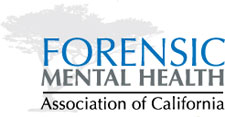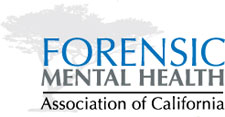Reimagining Perceptual Resources: Cultural Humility in Forensic Mental Health Services
Date & Time
February 27, 2023
9:00am - 4:15pm
Location
HYBRID OPTION - ZOOM
Holiday Inn - San Diego Bayside
4875 N Harbor Blvd
San Diego, Ca 92106
February 27, 2023
9:00am - 4:15pm
Location
HYBRID OPTION - ZOOM
Holiday Inn - San Diego Bayside
4875 N Harbor Blvd
San Diego, Ca 92106
Summary
This training program on developing cultural humility for mental health service providers was developed by Drs. Jesus Rodriguez and Mark Williams. This presentation will focus on identifying the perceptual and psychological processes that impact the way that individuals interact with others who are demographically dissimilar from themselves. We will examine the psychological processes that impact decision making within organizations and identify specific ways clinicians and service providers can engage more effectively with ethnically and racially diverse client populations.
This training will provide specific information on developing and nurturing an internal perceptual frame to inform our stance in working with diverse client populations. Trainees will receive information that helps them evolve a simple content formulation (i.e., cultural competence) into a dynamic process orientation (i.e., cultural Humility) This reflects a move away from paradigms that view multicultural training from a linear either/or perspective and adopting a dynamic perspective that considers how content and process can be utilized together as an effective approach to training.
The experiences of race-based discrimination can have detrimental psychological impacts on individuals and their communities. Racial trauma is the cumulative traumatic effect of repeated experiences of racism and discrimination, including exposure to media coverage of acts of racism and race-based violence. Race-Based Traumatic Stress (RBTS) refers to the mental and emotional injury caused by encounters with racial bias and ethnic discrimination, racism, and hate crimes. In the U.S., Black, Indigenous People of Color (BIPOC) are most vulnerable to experiencing the impact of racial trauma due to living under a system of historical white supremacy. This presentation will focus on historical experiences of the BIPOC community in the considerations of racial trauma. We will explore the impact of microaggressions, implicit bias, and differing perceptions influenced by privilege on the American consciousness and experience. We will examine diagnostic considerations through the lens of DSM-V and outline a therapeutic approach and considerations to working with racial wounds and trauma.
This training will provide specific information on developing and nurturing an internal perceptual frame to inform our stance in working with diverse client populations. Trainees will receive information that helps them evolve a simple content formulation (i.e., cultural competence) into a dynamic process orientation (i.e., cultural Humility) This reflects a move away from paradigms that view multicultural training from a linear either/or perspective and adopting a dynamic perspective that considers how content and process can be utilized together as an effective approach to training.
The experiences of race-based discrimination can have detrimental psychological impacts on individuals and their communities. Racial trauma is the cumulative traumatic effect of repeated experiences of racism and discrimination, including exposure to media coverage of acts of racism and race-based violence. Race-Based Traumatic Stress (RBTS) refers to the mental and emotional injury caused by encounters with racial bias and ethnic discrimination, racism, and hate crimes. In the U.S., Black, Indigenous People of Color (BIPOC) are most vulnerable to experiencing the impact of racial trauma due to living under a system of historical white supremacy. This presentation will focus on historical experiences of the BIPOC community in the considerations of racial trauma. We will explore the impact of microaggressions, implicit bias, and differing perceptions influenced by privilege on the American consciousness and experience. We will examine diagnostic considerations through the lens of DSM-V and outline a therapeutic approach and considerations to working with racial wounds and trauma.
Presented By
|
MARK WILLIAMS, PHD
Dr. Williams received his doctorate in clinical psychology, with an emphasis in Neuropsychology, from Binghamton University in New York. In 2005, he completed his clinical psychology internship at DSH-Patton followed by a 1-year post-doctoral fellowship in neuropsychology. In his 17 years at Department of State Hospitals - Patton, Dr. Williams has served as Chair of the Positive Behavior Support Services, coordinating supervisor for the Clinical Psychology Internship Program, Senior Psychologist Specialist and Senior Psychologist Supervisor. In addition, he was the director of the Recovery Inspired Skills Enhancement (RISE) cognitive rehabilitation program at DSH-Patton for more than a decade. Dr. Williams is an active member of the Statewide Trauma Informed Care committee, DSH statewide Racial Justice and Equity Committee and the Statewide Neuropsychology and Cognitive Rehabilitation Leadership group. |
JOSE DE JESUS RODRIGUEZ, PHD
Dr. Jesus Rodriguez received his Ph.D. in 2006 from the APA accredited combined program in Clinical, Counseling, and School Psychology at Utah State University. He completed an APA approved pre-doctoral internship at Patton State Hospital (PSH) before joining the PSH Psychology Department in 2006. He is past Chair of the Patton State Hospital Psychology Department. His primary duties at Patton State Hospital consist of providing clinical and forensic psychological services to individuals with severe mental illness who have been criminally adjudicated and committed to the hospital for psychiatric treatment. For the past 13 years he has worked on a unit of the hospital designed for the delivery of services to patients who are monolingual Spanish speaking. In addition to his primary appointment at Patton State Hospital, he also has a part-time private practice that primarily focuses on conducting psychological evaluations for immigration purposes. |
Learning Objectives
- Describe three areas where racial disparities exist between White and BIPOC individuals
- Describe three ways in which organized psychology has historically promoted racial discrimination
- Describe the concept of historical trauma and its relation to mental health
- Describe the four domains of the Multicultural Ecological Comparative Approach (MECA)
- Describe multigenerational transmission of trauma
- Describe six intra- and interpersonal components of cultural humility as a process orientated
- Explain the relationship between racism and the experience of chronic stress and trauma by BIPOC persons
- Describe three micro-intervention strategies to disarm and dismantle individual and systemic racism and bias
- Describe the four domains of the DSM-V Cultural Formulation Interview
- Explain how a humanistic therapeutic stance can help to promote an appreciation and valuing of cultural differences
CE Credit |
Intended Audience |
Experience Level |
|
6 CE Available for CPA, BBS
Additional Continuing Education Information |
This training is intended for mental health clinicians.
|
This training is appropriate for all level clinicians.
|

